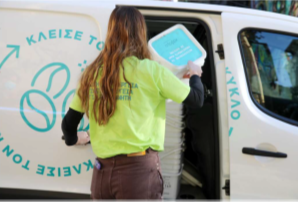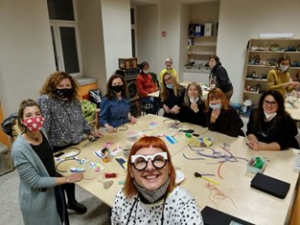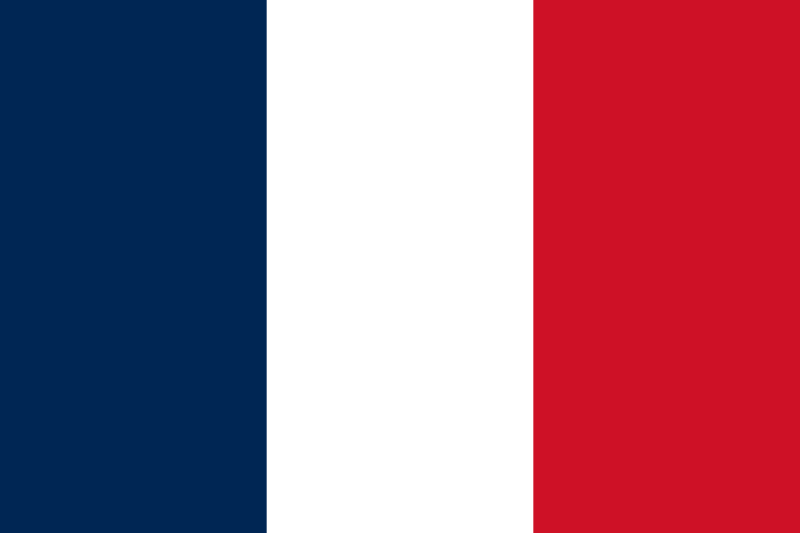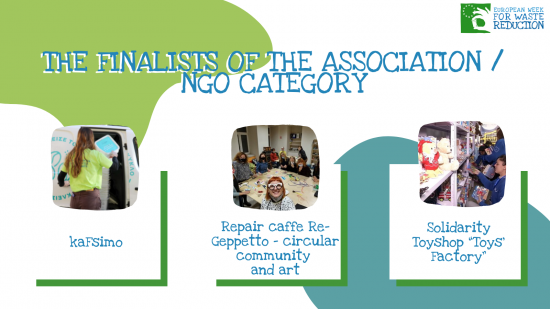Let’s discover the three finalists of the association/NGO category!
- kaFsimo implemented by InCOmmOn, in Thessaloniki and Kilkis
During the European Week of Waste Reduction 2021, the NGO InCOmmOn invited consumers to drink their coffee in one of the cafes in kaFsimo’s network and help ‘InCommOn’ to “close the circle of coffee”. ‘InCommOn’ collects and recycles spent coffee grounds (SCG) from the participating cafes and turns them into bioenergy and compost, while also encouraging behaviour change, using coffee-drinking and thinking about waste as a starting point. Having the members of kaFsimo’s network as active partners (46 cafes in Thessaloniki and Kilkis, Northern Greece), the coffee residue (spent coffee grounds -’SCG’) is collected with an electric vehicle, to minimise CO2 emissions. The action engages coffee-shop owners and staff (and the public) through the medium of coffee, and collects and processes coffee waste for reuse and makes sure that the collected SCG is being processed accordingly and does not end up in landfills. kaFsimo is innovative, circular coffee recycling scheme which is based on community-participation and is intended to change habits and raise awareness, through praxis.
kaFsimo network: https://www.google.gr/maps/@40.6464413,22.926839,13z/data=!4m3!11m2!2s72BU5FFoET5XlOdriwdBaj03vkH7kA!3e3?hl=en&authuser=3

- Repair caffe Re-Geppetto – circular community and art implemented by Green Istria Association, in Pula
Repair caffe Re-Geppetto is a new place in the Community center Rojc in Pula where citizens can repair objects and devices for free on a do-it-yourself principle. During the EWWR, Green Istria organized different workshops to provide all interested citizens with the space, tools and advice they need in order to repair small household appliances, items, furniture, clothes and toys on their own or with the help of volunteers and the workshop manager. They hosted two local artists that talked about importance of engaged art for more sustainable future. It concluded that environmental issues and climate change determine many artistic activities, and artists use their work as a platform to raise awareness and imagine a more sustainable future.

- Solidarity Toyshop “Toys’ Factory” implemented by Fundación “Mar de Niebla”, in Gijón
A group of young people that perform a Knowladge-Service of Dependent trade training, are trained in skills of trading while launching a Solidarity Toyshop. What makes this methodology so special is that they learn as they perform. This group, guided by their trading teacher and a technician of the program, performs the assembly of the Solidarity Toyshop from scratch. This Toyshop will be nourished with toys that are donated by individuals, entities, associations and companies from Gijón (and other municipalities). Upon arrival at the toyshop warehouse, these donated toys are received and passed to the “set-up” area, where the students (with the help of a group of volunteers) check, repair, clean, disinfect and ultimately, give a second life to those toys. The boys and girls that have been trained are the ones leading the project and they are in charge of the toyshop and all the work related.
More: https://drive.google.com/file/d/17UHpSilt4J025qhUpJ1n1jR4kklxnWd3/view
The jury member of this category is Andrea González, Membership Officer at European Environmental Bureau.
 EN (full site)
EN (full site) ITA
ITA FRA
FRA POR
POR ESP
ESP CAT
CAT DEU
DEU NED
NED HUN
HUN